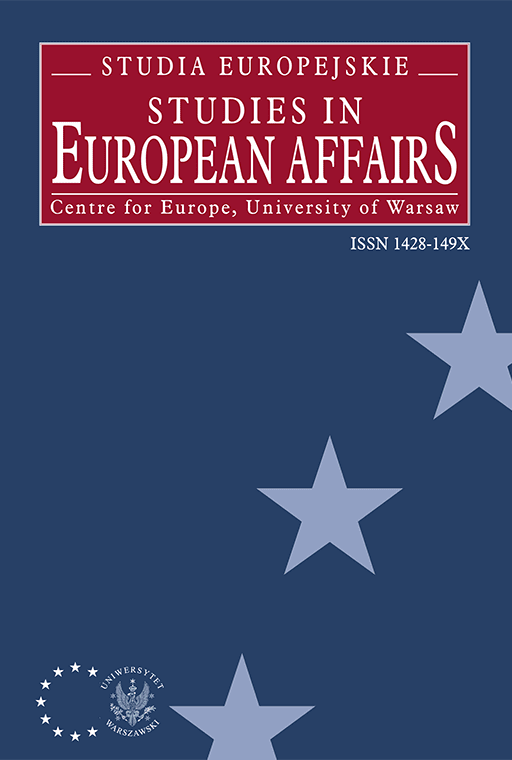
ISSUE: 2/2013
- Volume 66
- Number 2
- 2013
Subscribe NEWSLETTER
Studia Europejskie –
Studies in European Affairs
ISSN: 1428-149X
e-ISSN: 2719-3780
License
Articles published in the journal are under a Creative Commons Attribution – Non Commercial – No Derivatives 4.0 International License
Standardy demokracji przedstawicielskiej w Unii Europejskiej a equilibrium legitymizacyjne w czasach kryzysu
Standards of Representative Democracy in the European Union and the Legitimacy Equilibrium During the Crisis
Abstract
The two important events that shape our thinking about the democratic standards within the European Union and its member states at the break of the first and second decade of the XXI century are: the ratification of the Lisbon Treaty as well as the economic crisis in some members of the euro-zone. This analysis examines the major claims of the Treaty on democracy, its mechanisms and legitimacy. Subsequently, it contextualises them in the existing literature on democratic deficit and the legitimacy questions in the multilevel governance system of the EU. The author builds a scheme which reflects the channels of legitimacy in the decision-making process which the EU is entertaining. This system is then confronted with the problem of the current economic crisis. The ‘rescue policies’ intervention of the EU is criticised by many for violating the vox populi in the indebted countries. Therefore, this paper reflects upon the tension between democratically justified but economically irresponsible decisions on the one side, and the austerity measures imposed as a consequence of the previous decisions imposed from the outside and therefore seen as ‘undemocratic’. The author concludes that the present legitimacy equilibrium is sufficient to democratically justify the austerity measures imposed on the reform-resistant economies.
Language: Polish
Pages: 9-31
How to Cite:
Harvard
Riedel, R. (2013) "Standardy demokracji przedstawicielskiej w Unii Europejskiej a equilibrium legitymizacyjne w czasach kryzysu". Studia Europejskie – Studies in European Affairs, 2/2013, pp. 9-31.